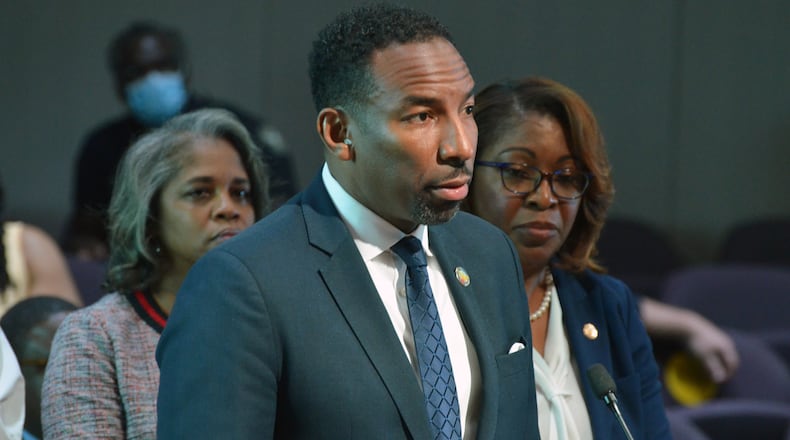The city of Atlanta will return $10 million in emergency rental assistance funding to the federal government after the money wasn’t provided to needy residents before the December 2022 deadline.
The money was meant to help people with housing costs during the pandemic, through COVID-19 relief packages.
The city received $21 million in additional rental assistance funding from the state of Georgia’s allocation after it successfully distributed initial allocations provided by the federal government.
City finance officials first relayed news of the missed deadline to councilmembers in the Finance/Executive Committee late last month.
Atlanta Chief Financial Officer Mohamed Balla told the council Monday that the $21 million in extra funding only came to the city because Atlanta had successfully distributed about $50 million in rental assistance from COVID-19 relief programs — including the CARES Act and two rounds of emergency rental assistance. He called the additional $21 million in funding a “hefty sum and a lofty goal” to spend when they received it in March of 2022, just nine months prior to the deadline.
“From the inception of COVID, the city had sources of funds available to it to help renters in the city of Atlanta,” Balla said. “In 2020, we deployed $23 million from the CARES program towards rental assistance all that money has been spent. The city of Atlanta on its own received two (emergency rental assistance) allocations in two separate programs.
“In program one, we received $15 million. We allocated and spent all that money. In program two, we were allocated $12 million. We programmed and spent all that money.”
The additional $21 million allocation came after that, Balla said.
Atlanta has struggled to provide affordable housing to residents, and a major plank of Mayor Andre Dickens’ campaign was to build or maintain 20,000 affordable units during his tenure. An Atlanta Regional Commission study last year found Metro Atlanta lost nearly 60,000 affordable housing units — renting for less than $1,250 per month — over just a five-year span before the pandemic hit.
News of the unspent funding surprised both Atlanta residents struggling with housing costs, and council members who say they could have helped the city fully utilize the funds.
During public comment at Monday’s City Council meeting, landlords and property managers detailed obstacles navigating the “inconsistent” application process for the money, and the unexpected denials that left their tenants at risk of eviction. Atlanta renters strapped for cash said they were at a loss for how to get help.
Tanya Greene, an Atlanta tenant, said she has applied multiple times for the rental assistance and has been unable to get information about her status. Greene said she and her son are fortunate that they are able to stay with her parents, while many others may be forced into homelessness.
“I can’t express just how much anguish this whole process has put me through,” Greene said, citing the crush of the pandemic and inflation on her family. “...We really, really, really need you guys to figure out a way to keep this money but also get the right people in charge of this money so that we can have the opportunity to at least just be able to breathe again.”
Others asked the council to put more pressure on the Dickens’ administration over the lost funds.
“Ten million dollars is a lot to give back in a majority Black city where a majority of Black people are suffering and hurt,” said resident Duwon Robinson. “...Together, we have to hold people accountable and not send that money back.”
City officials said that around 12,000 households were helped by all the COVID funds sent to Atlanta, and defended the city’s success in implementing multiple phases of emergency rental assistance programs.
The first batch of assistance money also had tight restrictions around use, Balla said. More funds from a second round of emergency rental assistance two are able to be distributed through 2025, and have broader guidelines for distribution.
“There’s a reallocation process now for era-two funds,” he said. “And the city will put its hat in the ring for some additional funds and we’ll see how that plays out. And however that plays out, we will be sure to communicate those results to the city council and the public, as well.”
City council members argued that they could have helped make sure that all the funds were maximized by connecting officials directly with community members in need.
“I would have made sure that we were able to pay folks rent,” Councilmember Antonio Lewis said.
About the Author
Keep Reading
The Latest
Featured




